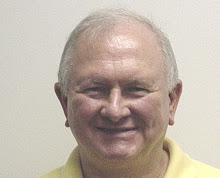This may prove useful in discussions with your children about money. Let's allow me some license with my early figures. Say you find clothing on sale for 20% off. Say further that you decide to buy $1,250 of clothing for the amazingly low price of only $1,000. Whether or not that is a good deal depends on where the $1,000 originated.
For the sake of argument, let's assume that your monthly discretionary income is exactly $1,000. If the money you spent on clothes came from that, no harm, no foul - unless you want to buy something else this month. Suppose you had other things you wanted to buy. Reach for that handy store charge card and we'll pay for it next month - out of next month's discretionary income. Aye, there's the rub.
In this scenario, you have just obligated income that you don't have yet. You have just guaranteed that you have NO discretionary income next month, because you have already obligated it. You spent next month's income before it actually came in. Now, if you control your spending and your income continues, no harm, no foul. After next month, you will return to having discretionary income. Suppose you had a sudden illness (like a heart attack, maybe) that stopped your income. You now have to pay money that you don't have. Of course, things like that probably won't happen.
What is more likely is that you will find something you want to buy next month as well. But you owe that pesky $1,000. Well, lookie here: The nice store will let you pay less than the $1,000, so you can still buy something next month. As long as you pay the minimum payment, everyone is happy and you still got a great deal on those clothes. Ya think?
I was going to give the name of a nationally known clothing store, but decided against it. The following figures are taken from an actual revolving credit account: Minimum Finance Charge per Month = $1. This rarely comes in to play, but if the finance charge computed to less than $1, they will still charge you $1. The reason that rarely happens is the Annual Percentage Rate is 22.8%. The only way the finance charge would calculate to less than $1 is if your balance were only $4.38.
Update: Finance charge is $1 when the balance is $52.63. (Sorry for any confusion.) The minimum monthly payment works out to 5% of the outstanding balance, or $50 the first month.
You figure you can live with only $950 in discretionary income, so you decide to pay $50 a month until the balance is zero. You can verify these figures in any spreadsheet. Simply add the interest (22.8% / 12) per month and subtract $50 until the balance is zero. In a mere 26 months, you will have achieved your goal. You will have paid a total of $1,270.08 (that, by the way, is $20 more than the non-sale price of the items). But you can do better. The minimum monthly payment for balances under $200 is $10. Suppose you paid only the actual minimum payments. In a mere 76 months (that is six years and four months for those without a calculator), you would have paid a total of $1,532.98 for the $1,250 worth of merchandise that you charged for $1,000.
Let's say you decide to devote 10% of your discretionary income to paying this bill. After paying $100 for 11 months, you would owe $20.35. You pay that in the 12th month and in a mere year you have paid $1,120.35 for the items.
By now, I hope you get the idea. Those monthly payments can add up to quite a bit. That's why the car commercials no longer tell you what you will actually pay for the car, they tell you what your MONTHLY PAYMENT will be. That's why the "interest only" mortgages emphasize the amount you "save" each month over a conventional mortgage. Never mind that a conventional mortgage will eventually have a zero balance, while the interest only loan will always have the intial balance.
Oh, on the subject of mortgages (or any long-term loan), you can cut the number of payments (and therefore the amount you actually pay) substantially by making double payments early in the loan. You have an $800 mortgage and you are thinking "I can't pay $1,600 on this note each month". You don't have to. Look at your amortization schedule. You are probably only getting $150 of that $800 applied to principal. To double the payment, you simply include an extra $150 (Total of $950 in our example) with your normal payment.
Or, you could calculate what the payments would be for a 15-year instead of a 30-year mortgage. For example a $100,000 mortgage at 6% would have payments of $599.55 (principal and interest) for a 30-year mortgage and $843.86 (principal and interest) for a 15-year mortgage. The 30-year motgage will cost $215,838.19 and the 15-year one will cost $151,894.23. You do the math.
